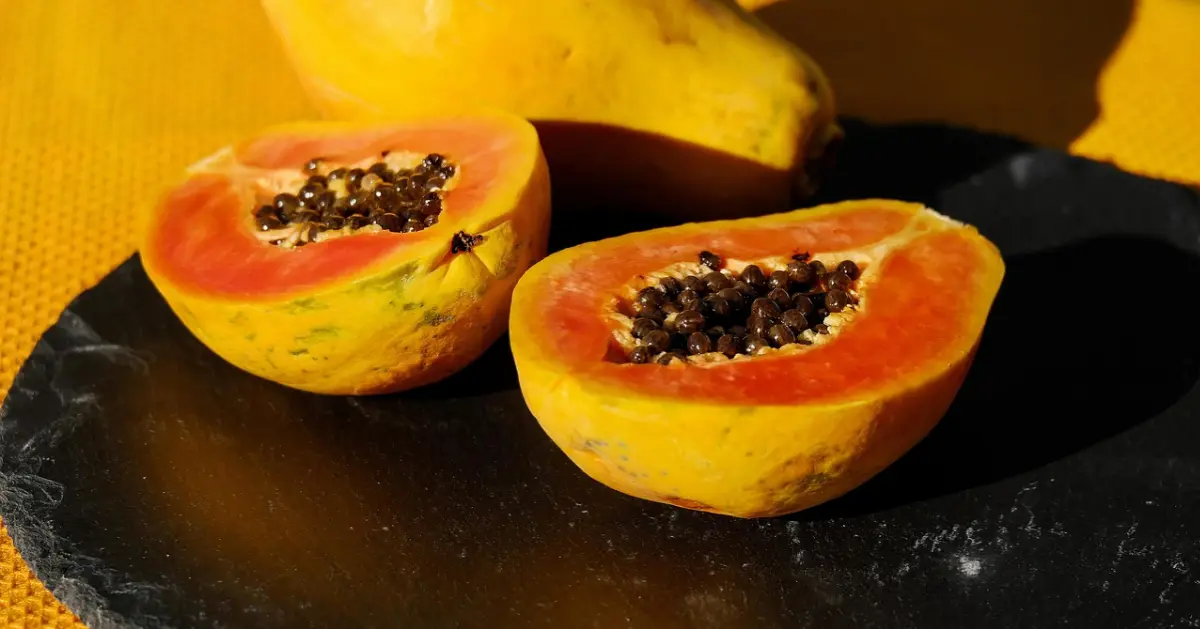Patients often hear conflicting advice about papaya — especially during viral infections, pregnancy, and wound healing. Let’s explore the facts behind these common papaya myths, based on scientific evidence.

1. Can papaya increase platelet count in dengue or viral fever?
This is one of the most viral myths during monsoon.
- Reality: Papaya leaf extract (not the fruit) has shown mild benefit in early research to improve platelet count in dengue fever — but only in lab-controlled studies, not consistently in real-life patients.
- There is no strong scientific proof that eating papaya fruit or its juice alone increases platelets or cures viral infections.
- If platelets are dangerously low, hospital treatment, hydration, and monitoring are critical.
📌 Papaya is not a cure for dengue. Do not rely on home remedies during critical illness.
2. Is papaya harmful during early pregnancy?
There is a widespread belief that papaya causes miscarriage.
- Reality: Unripe or semi-ripe papaya contains a latex-like compound (papain) which can stimulate uterine contractions in animal studies.
- Fully ripe papaya in small amounts is generally considered safe, but it is still better avoided during the first trimester.
- When in doubt — especially during early pregnancy — stick to safe, well-tolerated fruits and avoid papaya in raw or semi-ripe form.
⚠️ Avoid papaya during early pregnancy — especially raw or semi-ripe forms.
3. What is papaya made of? Nutritional facts
Papaya is a tropical fruit rich in:
- Vitamins: A, C, E, and folate
- Minerals: Magnesium, potassium, and small amounts of calcium
- Enzymes: Papain — a natural proteolytic enzyme that helps break down proteins
- Fiber: Promotes digestion and regular bowel movements
The enzyme papain is the most medically interesting compound in papaya.
4. Medical use of papaya enzyme (Papain)
Papain (from the raw latex of unripe papaya) has been used in:
- Wound debridement: Special papain-urea dressings are used to remove dead tissue from chronic wounds (like diabetic ulcers).
- Digestive enzyme supplements: For people with pancreatic insufficiency or indigestion.
- Anti-inflammatory and anti-bacterial activity: Being researched further.
🧬 Papain works by digesting protein debris in wounds, promoting faster healing.
However, papain should be used only under medical guidance, especially in people with latex allergies or sensitive skin.
Summary of Myths vs Facts
| Myth | Reality |
|---|---|
| Papaya cures dengue | No. Papaya leaf extract may help mildly. Fruit has no proven benefit. |
| Papaya is dangerous in all pregnancy | Unripe papaya should be avoided in early pregnancy. Ripe fruit in moderation is likely safe. |
| Papaya increases platelets | Not consistently. Hospital care is essential for low platelets. |
| Papain is a natural medicine | Yes, but only in controlled form. Use for wounds only under medical advice. |
Do’s & Don’ts
✅ Do’s
- Eat ripe papaya as part of a healthy diet (if not pregnant).
- Consult your doctor before using any herbal or enzyme-based treatment.
- Understand that fruits alone cannot replace medical care in serious illnesses.
- Use wound care products only after medical guidance.
❌ Don’ts
- Don’t use papaya fruit as a treatment for dengue or fever.
- Don’t consume raw or semi-ripe papaya during pregnancy.
- Don’t self-medicate with papaya enzyme without prescription.
- Don’t delay hospital treatment relying on myths.
Final thoughts
Papaya is a healthy fruit when used appropriately, but not a miracle cure. Whether it’s viral infections or pregnancy care, the best outcomes come from scientific treatment, not superstition. Trust your doctor and always verify health claims before following them.
About the Author
Dr. Raja Ramesh, MD (Osmania)
Consultant Physician & Diabetologist in Attapur, Hyderabad
Available at Olive Hospital (10am–5pm) & Care Clinic Attapur (5pm–8pm)
📞 Call +91 7989676770 for appointments.

